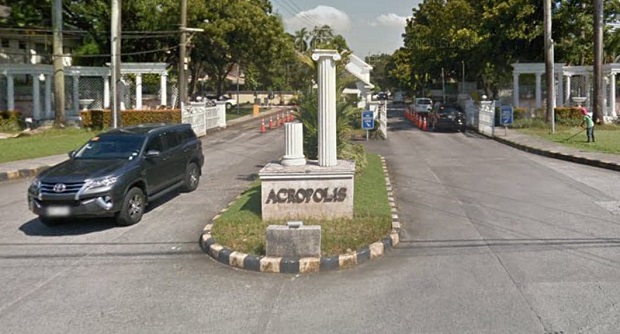Globe Telecom said on Tuesday, Oct. 20, that residents of Acropolis Greens subdivision in Quezon City may experience telecom service degradation after its homeowners association rejected the company’s plan to install a cell tower inside the exclusive village.

Following several complaints from the residents of weak connectivity, Globe said it was able to do a technical survey of the village to optimize its network. The recommendation by the company was to put up a cell site inside the village premises.
But the subdivision denied the proposal, citing the perceived health risks that cell towers cause and safety concerns in a typhoon or a major earthquake that may lead to the tower’s collapse.
But Globe said it has conducted a seminar and consultation with Acropolis Greens Homeowners Association Inc. (AGHAI), explaining that there is no scientific evidence that cell towers cause cancer or any illness, highlighting testimonials from several health organizations including the World Health Organization and medical experts both here and abroad. The Department of Health also releases compliance permits before a cell site is installed to ensure its safety.
Since Typhoon Yolanda, Globe said the government has implemented stricter requirements that all major installations can withstand super typhoon levels of up to 260 to 340 kilometers per hour and 7.0 intensity earthquake based on the National Structural Code of the Philippines.
Globe said it has also made it known to the homeowners association of the recent move and renewed direction of the government to fast track the roll out of telecommunication structures to improve the country’s telecommunication services. The issuance of Joint Memorandum Circular No. 01 Series of 2020 by the Department of Interior and Local Government, Department of Information and Communications Technology, Department of Health and other national government agencies and the implementation of the Bayanihan Act 2 address the need to streamline the permitting processes required from telcos to build their cell towers.
“The JMC states that an application for locational clearance, barangay clearance, fire safety, evaluation certificate, and building permit shall proceed without the prior submission of the written (HOA/Condominium or Building Association/Owner or Developer of Building,” Vince Tempongko, Globe VP and head of site acquisition and management, network technical group, said.
Tempongko added that surveys conducted in Acropolis showed that there are no other available or suitable sites nearby which will serve the connectivity requirements of the residents of the village. The telecommunication infrastructure has to be installed within the village which is the most effective and efficient location for the cell tower. This concern is also specifically addressed in the JMC, said Tempongko.
Moreover, Globe said the Department of Human Settlements and Urban Development (DHSUD) has updated the guidelines on securing permits for information and communications technology (ICT) infrastructure projects. DHSUD secretary Eduardo Del Rosario said the move aims to reduce the number of documentary requirements to hasten processing of permits for building of network towers and other critical ICT infrastructures to hasten processing time.
Del Rosario clarified that to fast-track the application process for the telecommunication infrastructures, there is no need to go through homeowners associations (HOA), building owners, and concerned tenants.
Despite the rejection, Globe said it is still hoping that the AGHAI will reconsider its decision.




